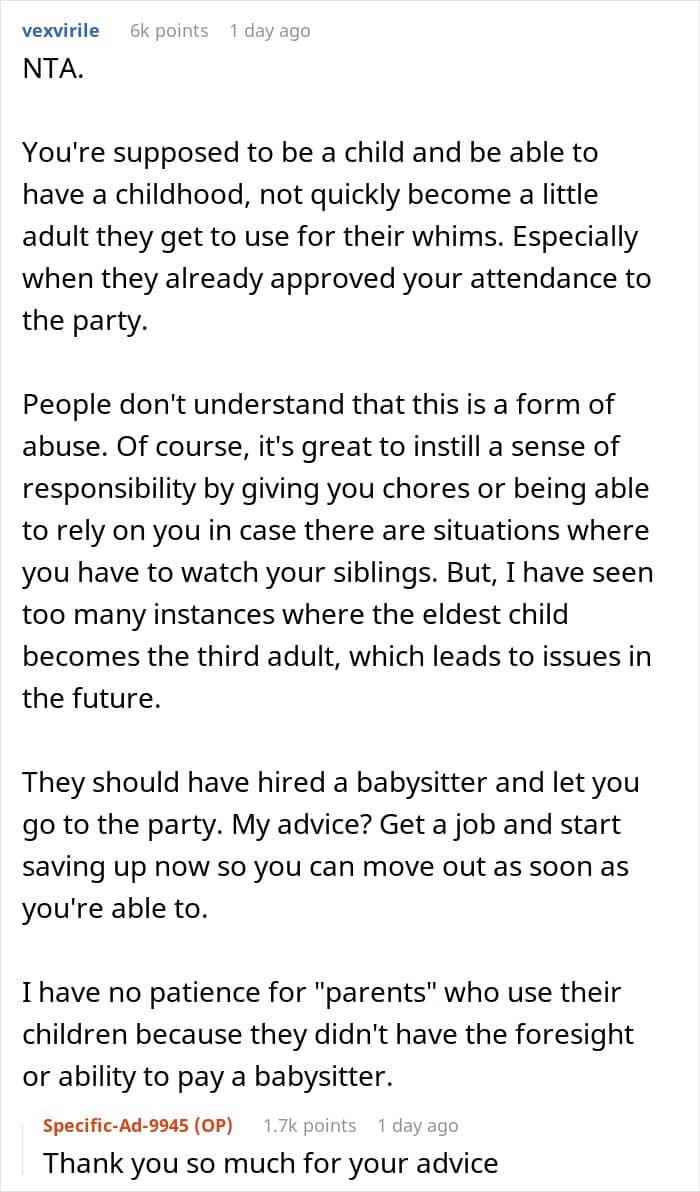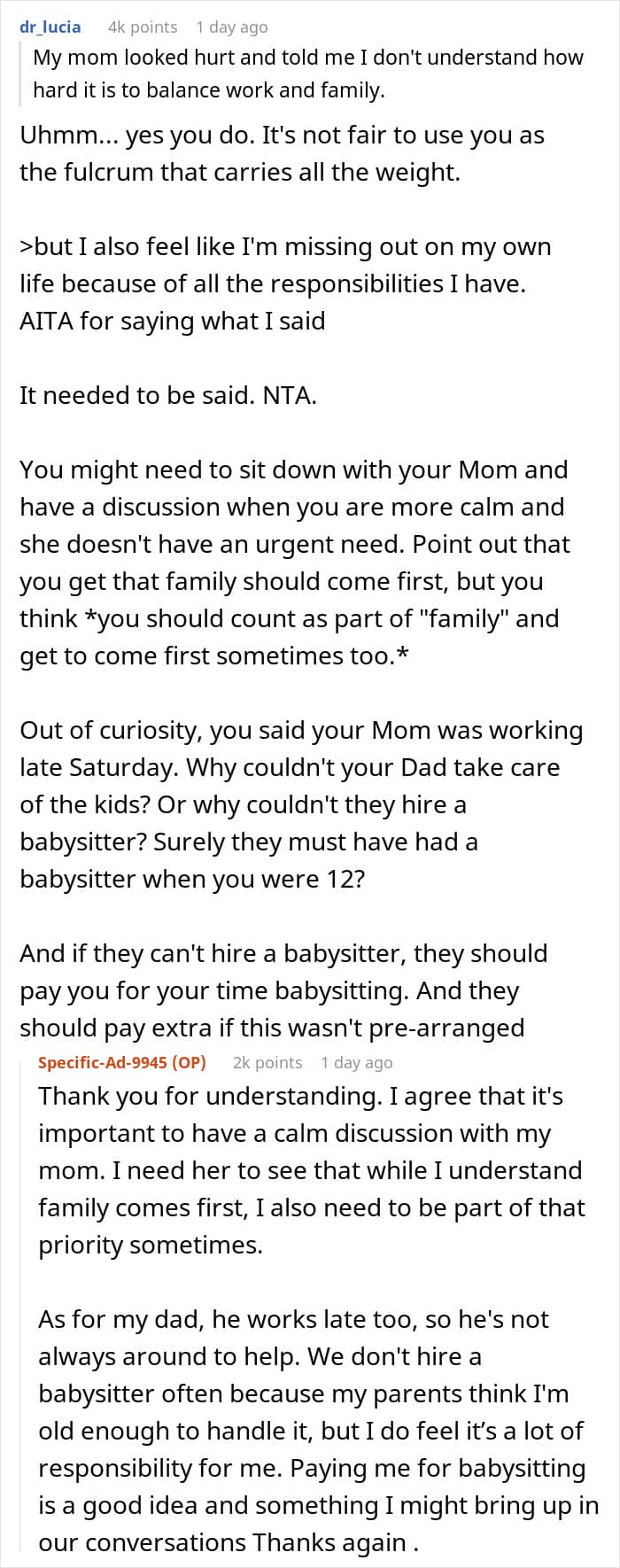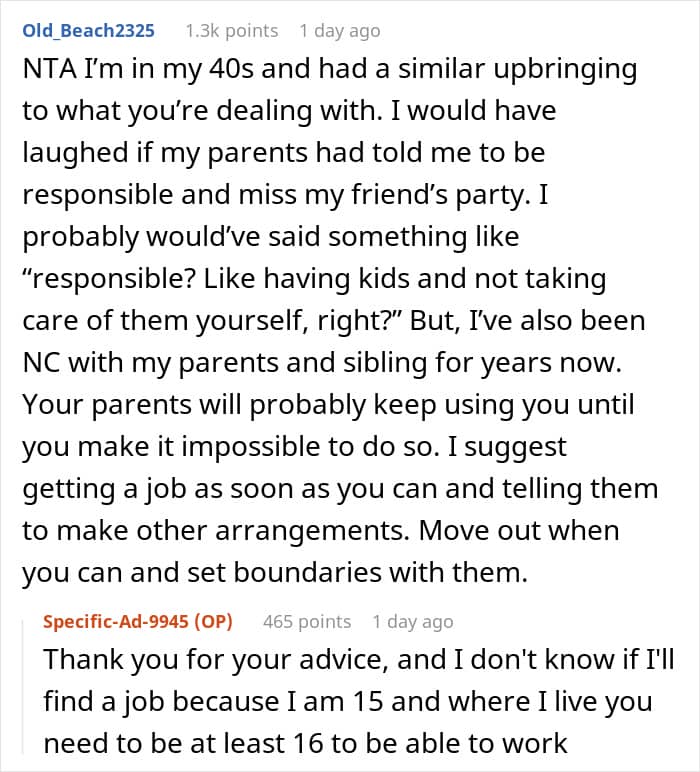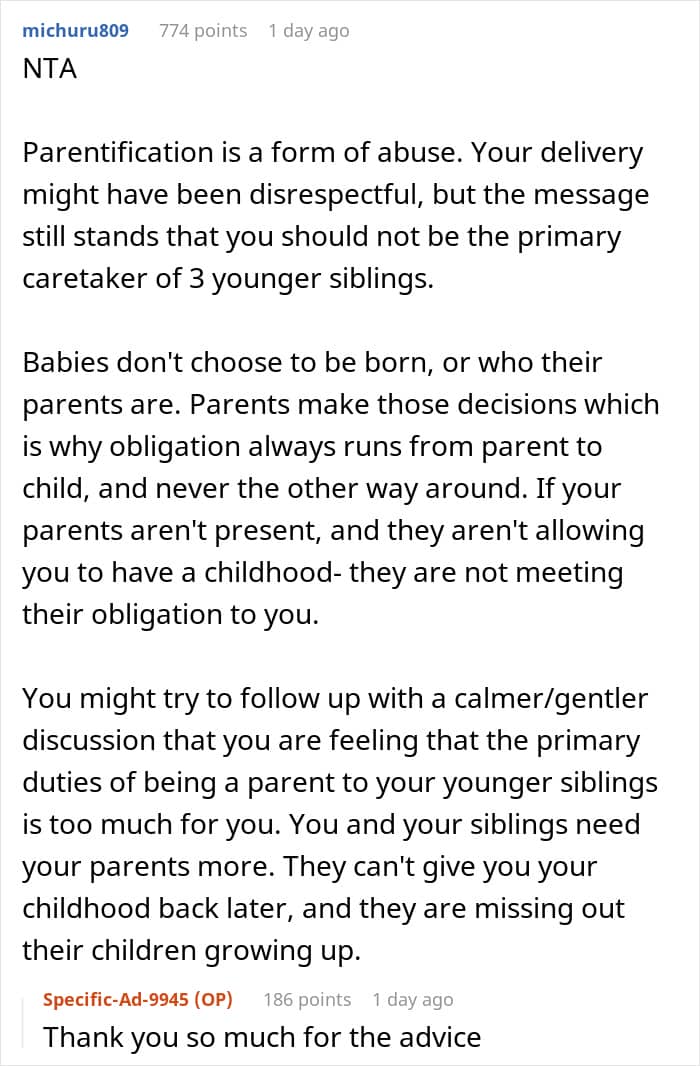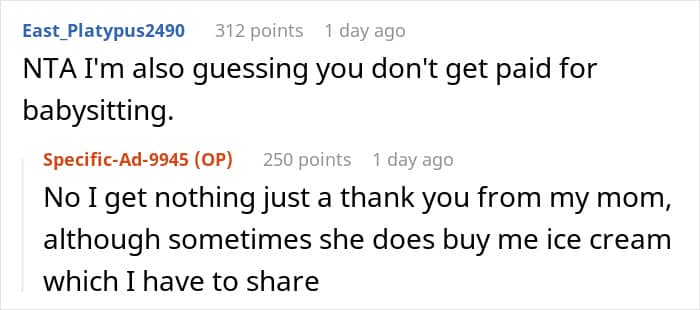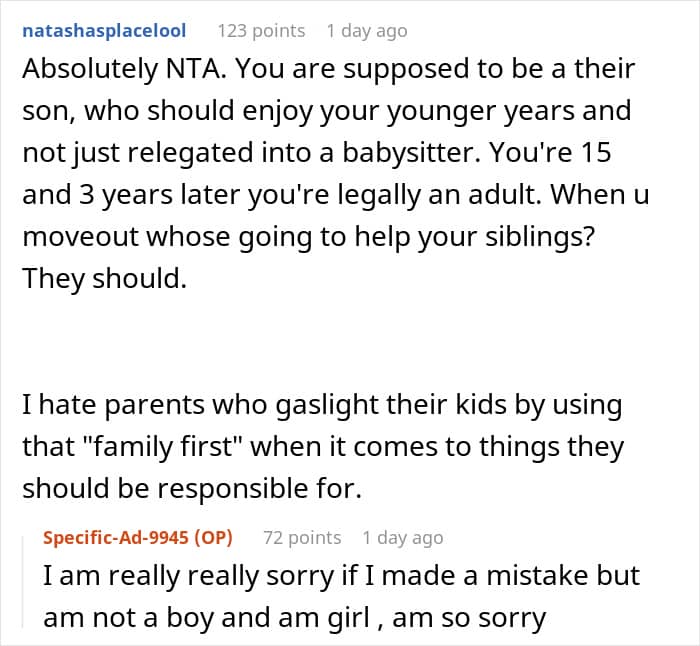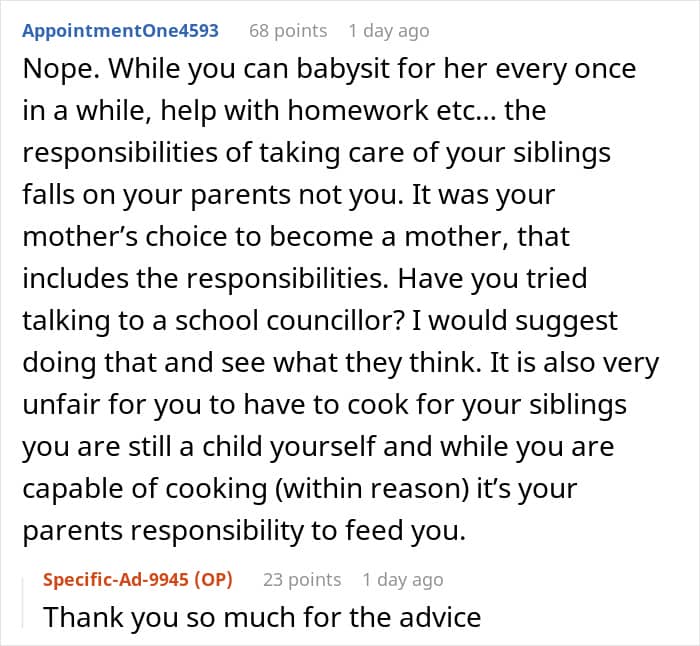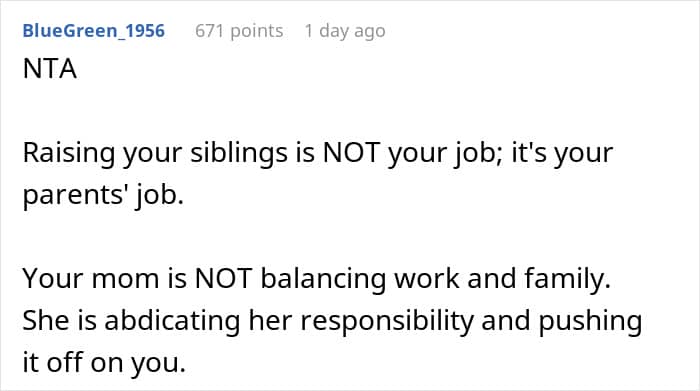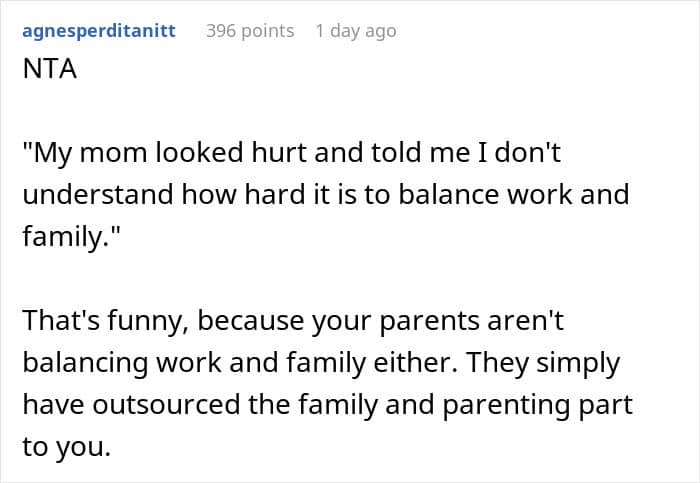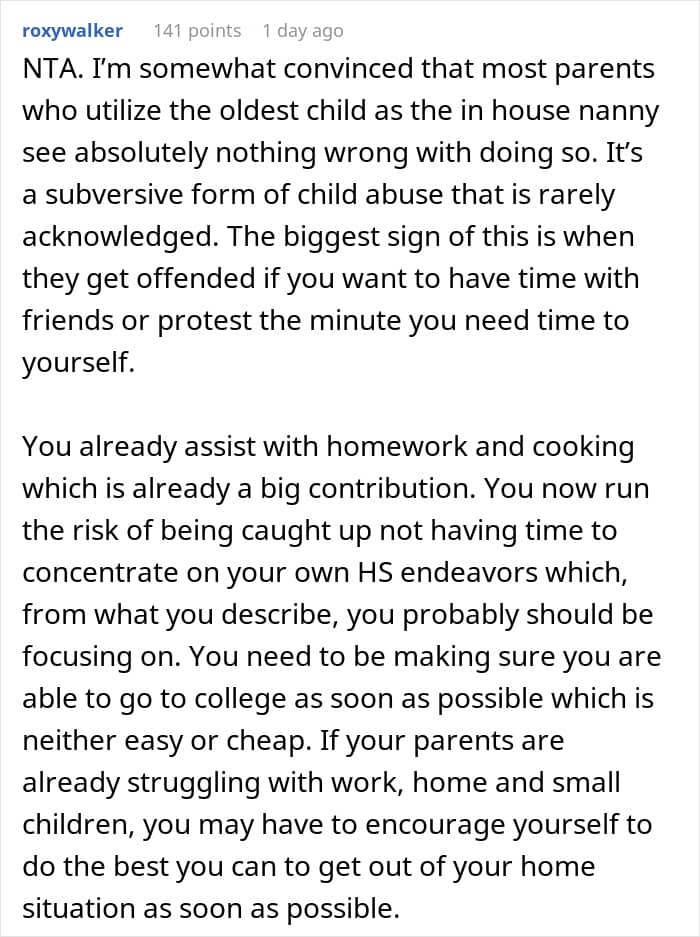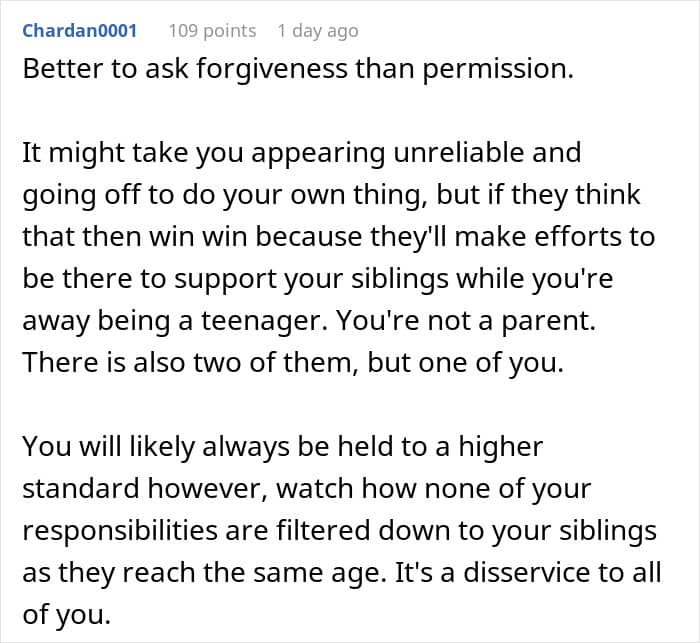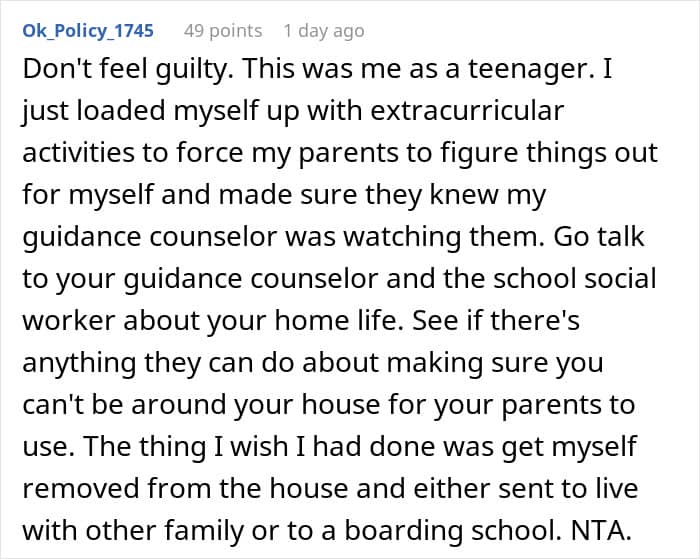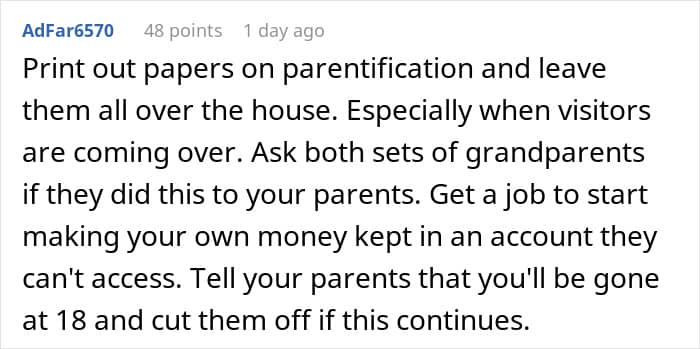Eventually, we all have to grow up. But some are forced to do it much earlier than others.
Last week, a 15-year-old turned to Reddit to let out her frustrations about the fact that she has becomethe de facto caregiver for her younger siblings while their parents focus on work.
However, after the teen had to miss her friend’s birthday because she was, once again, made to babysit, she decided to confront them and highlight how she feels she’s missing out on her life.
RELATED:
This teenager can’t help but think that she’s unable to live a full life

Image credits: gpointstudio / Envato Elements (not the actual photo)
And she blames her parents for it
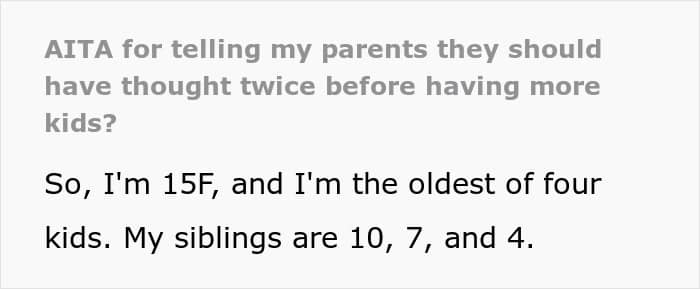
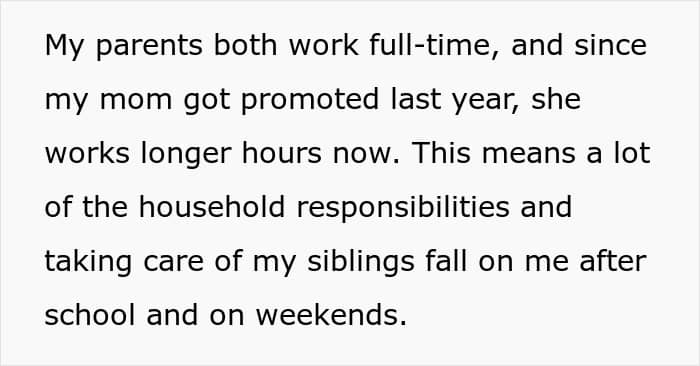
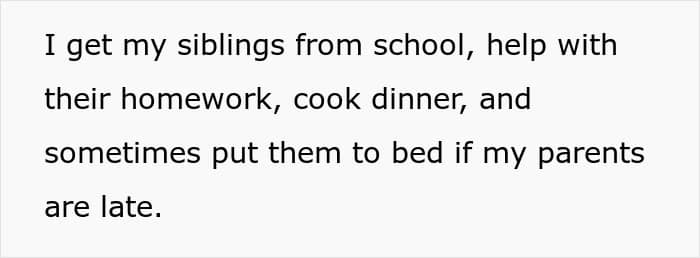
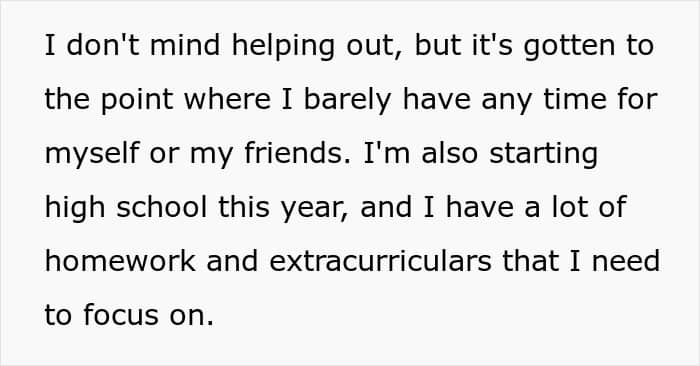
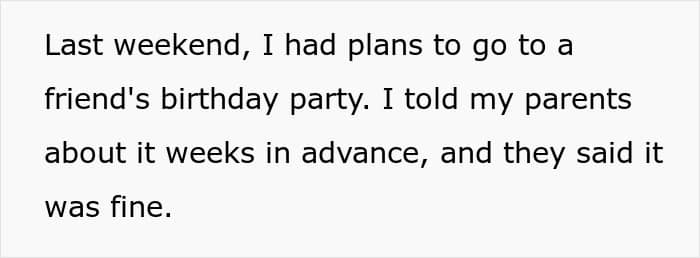

Image credits: Erik Mclean / Unsplash (not the actual photo)
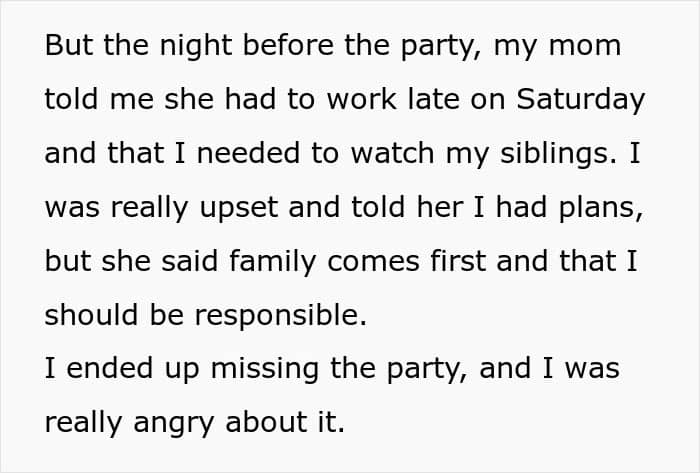
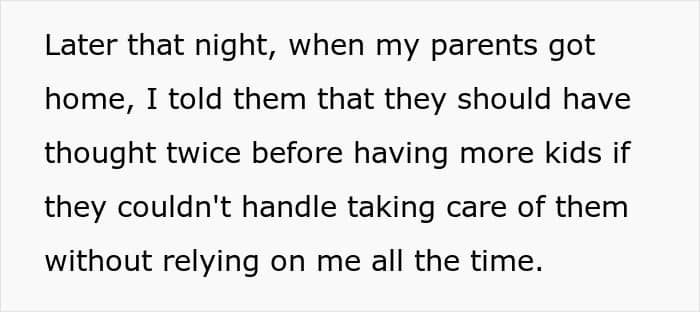
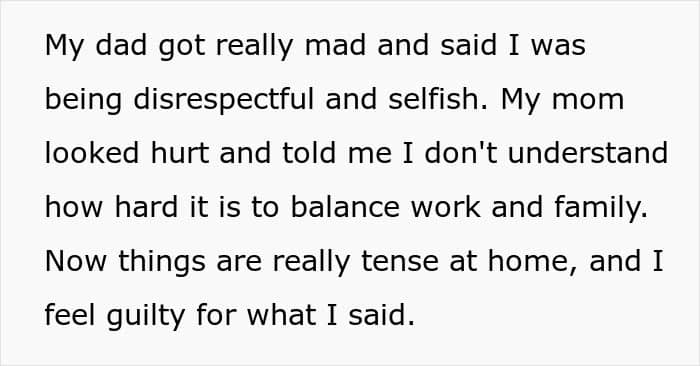
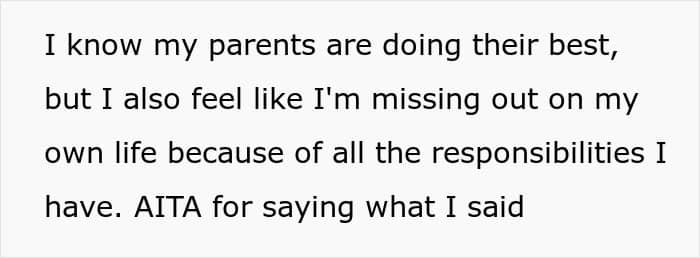
Image credits: Specific-Ad-9945
What this girl is experiencing is called “parentification”
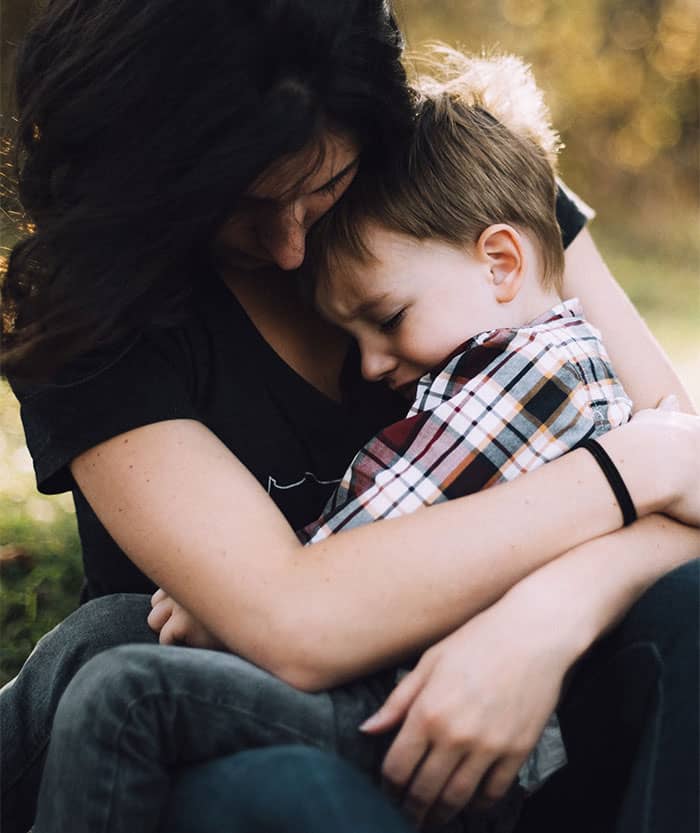
Image credits: Jordan Whitt / Unsplash (not the actual photo)
The idea of the “parental child” appeared in literature in the late 1960s, when a group of psychologists in the US studied family structure in the inner city. Given the high rates of single motherhood, incarceration, poverty, and drugs, they found that it often fell to a child to act as the family’s glue.
“If you think about it, your adult circle of acquaintances, colleagues, and friends probably include some who fit the bill,” psychologist and researcher Nivida Chandra says. “You may recognize the once-parentified child in the over-responsible co-worker, the always-available friend – the one who always seems to be weighed down by something, yet manages to take care of everything without ever asking for help in return. Despite her conscientiousness, this person’s inner world may be impoverished and, if you asked her, she might say she is running on fumes, or that she wishes she had a friend like her.”
According to Chandra, no child is equipped to solve adult problems. “As a consequence of always looking after others, little space is left for the child to know or express her own needs,” the psychologist adds. “The only legitimate needs seem to be those of others. Expressing her needs is met with frustration, anger, or other parental emotions that link her needs with fear and shame. This leads to the development of what pediatrician and psychoanalyst Donald Winnicott […] called a ‘false self.’”
This dynamic is more widespread than one might think
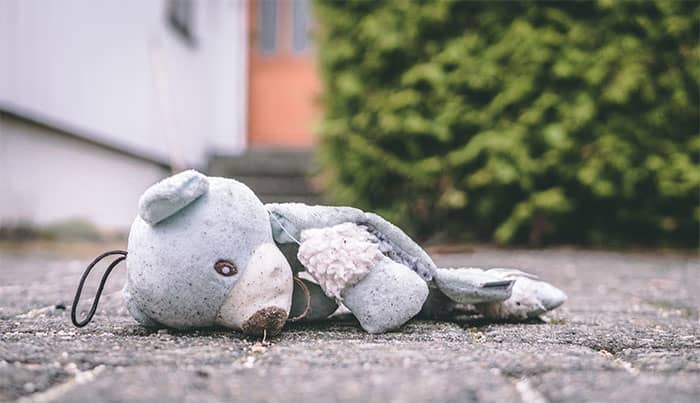
Image credits: Trym Nilsen / Unsplash (not the actual photo)
In its unhealthiest form, this self-denying persona allows the parentified child to stop expressing and fulfilling their own needs, and gain value from foregrounding the needs of others. This can cause issues that persist into adulthood as well. When a team of researchers reviewed 95 papers from 19 countries on the topic, they identified several common ones.
“There is a potential for dropping out of school if children have to work or help care for their parents and siblings. Lack of education has long-term consequences for employment and income, which in turn affects health status. They may also lose their friend network if they don’t have time to socialize, and they may resent missing out on childhood,” lead author of the study Dr. Jacinda K. Dariotis says.
Those who have been parentified are also more likely to engage in unhealthy coping strategies such as risky sexual behaviors and substance use. They may have difficulties in developing deep long-term relationships and may even continue the pattern with their own children, making the problem intergenerational.
Some estimates suggest that as many as 1.4 million children in the US between the ages of 8 and 18 provide care for an older adult or a sibling, including approximately 400,000 youngsters who are between the ages of 8 and 11.
People unanimously said that the teen could not be blamed for struggling with her parents’ responsibilities
